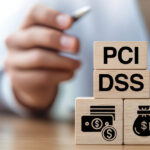Explore the most frequently asked questions about payment gateways, processing, and providers in Europe. Whether you’re a business owner looking to understand payment security, fees, or the latest regulations like PSD2 and GDPR, this comprehensive FAQ guide covers everything you need to know. From online payments to mobile transactions, we help demystify the payment process and provide insights on how to choose the right solutions for your business, ensuring secure and efficient financial transactions.
General Payment Questions
1. What is a payment gateway?
A payment gateway is a secure online system that authorizes payments made via credit cards, debit cards, or other methods. It acts as an intermediary between the merchant’s website and the payment processor.
2. What is a merchant account?
A merchant account is a type of bank account that allows businesses to accept payments via credit or debit cards. It is essential for processing transactions both online and in person.
3. What is PCI DSS compliance?
PCI DSS (Payment Card Industry Data Security Standard) is a set of security standards designed to protect cardholder data. Businesses that process credit card payments must comply with these standards to avoid data breaches.
Online Payments
1. What are the benefits of online payments?
Online payments offer increased convenience for customers, faster transaction times, and reduced operational costs for businesses.
2. How can I ensure the security of online payments?
To secure online payments, businesses should:
- Use a secure payment gateway
- Encrypt sensitive data
- Regularly update software and security patches
- Educate customers on best practices for online payment security
- Mobile Payments
1. What are mobile payments?
Mobile payments allow customers to make purchases using smartphones or other mobile devices.
2. How secure are mobile payments?
Mobile payments are highly secure, as they typically use advanced features like biometric authentication and tokenization.
Payment Processing Fees
1. How are payment processing fees calculated?
Payment processing fees generally include a transaction fee and a percentage of the transaction amount. These fees vary depending on the payment processor, the payment method, and transaction volume.
2. What factors affect payment processing fees?
Payment processing fees can be affected by factors such as the payment method, transaction volume, and the specific payment processor used.
3. How can I reduce payment processing fees?
To lower payment processing fees, businesses can negotiate with their payment processor, increase average transaction values, and optimize payment flows to minimize chargebacks.
Payment Gateways
1. What is a payment gateway?
A payment gateway is a system that securely processes payments made via credit cards, debit cards, or other payment methods, facilitating the transaction between the merchant and the payment processor.
2. How do I choose the right payment gateway?
When selecting a payment gateway, consider:
- Fees
- Security features
- Integration options
- Customer support
3. Can I integrate a payment gateway with my website?
Yes, most payment gateways offer APIs and SDKs to integrate with your website or mobile app.
Frequently Asked Questions (FAQs) about Payment Providers in Europe
1. What are payment providers in Europe?
Payment providers in Europe are businesses that facilitate digital transactions, ensuring secure and efficient payments. They offer services such as payment processing, fraud prevention, and compliance with regulations like PSD2 and GDPR.
2. How do I choose the best payment provider for my business in Europe?
Consider these factors when choosing a payment provider:
- Compliance with EU regulations (e.g., PSD2, GDPR)
- Security standards
- Multi-currency and multi-language support
- Transaction fees and integration options
3. What is PSD2 and why is it important for payment providers in Europe?
PSD2 (Revised Payment Services Directive) is an EU regulation designed to enhance payment security and create a more integrated payments market. It mandates stronger customer authentication (SCA) and better protection of customer data.
4. How do European payment providers ensure data security?
European payment providers prioritize data security through encryption, tokenization, and secure authentication methods, including biometrics and two-factor authentication (2FA). Many are also PCI-DSS compliant.
5. Which are the top payment providers in Europe?
Leading European payment providers include:
Novalnet: Known for compliance with EU regulations and secure payment solutions.
Adyen: Offers multi-currency support and seamless integration.
Stripe: A developer-friendly platform for e-commerce businesses.
Worldpay: Trusted by large enterprises for online and POS transactions.
Klarna: Popular for its “buy-now, pay-later” services.
6. How do payment providers comply with GDPR in Europe?
Payment providers comply with GDPR by obtaining explicit consent from customers before collecting personal data, ensuring secure storage of data, providing customers with rights to access, correct, and delete their data, and having data processing agreements (DPAs) in place.
7. What are the benefits of using a local payment provider in Europe?
Local providers offer advantages such as:
- Compliance with specific local regulations
- Faster settlement times
- Support for multiple languages and currencies
8. Can I use European payment providers for global transactions?
Yes, many European payment providers like Adyen and Stripe support global transactions, allowing businesses to accept payments from customers worldwide.
9. How does payment processing impact business growth in Europe?
Efficient payment processing enhances business growth by improving conversion rates, enhancing customer trust, and expanding market reach through multi-currency and multi-language support.
10. How do payment providers in Europe address fraud and chargebacks?
Payment providers use advanced fraud prevention tools, including machine learning, real-time monitoring, and identity verification. They also offer chargeback protection services to minimize financial losses.
11. What is the future of payment providers in Europe?
The future of payment providers in Europe will likely involve the use of AI for fraud detection, integration of blockchain for secure transactions, and an increase in real-time payment solutions.
12. What are the most common payment methods in Europe?
Common payment methods in Europe include:
- Credit and Debit Cards
- SEPA Direct Bank Transfers
- E-Wallets (e.g., PayPal, Apple Pay)
- Buy Now, Pay Later (BNPL) services like Klarna
13. What are the fees associated with European payment providers?
Payment fees typically include transaction fees (1-3%), setup fees, monthly fees, and chargeback fees. Providers may also have hidden costs such as integration or maintenance fees.

Antony Robinson is an experienced IT expert, information architect and a customer experience evangelist. He has over 30 years of experience in web technologies, user experience, media, and marketing. Antony is currently the CMO of Novalnet AG, a fintech company in Germany. As CMO, he leads the company’s marketing strategy and fosters collaborations. Antony’s expertise and dedication to technology and innovation make him a valuable leader in his field.










